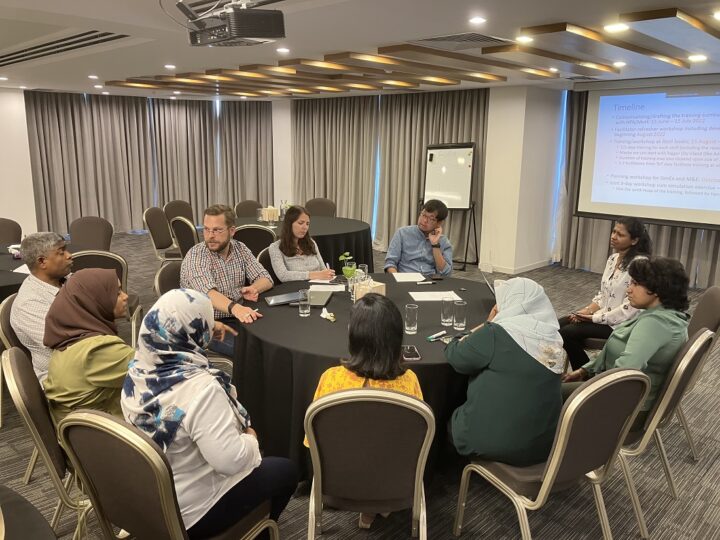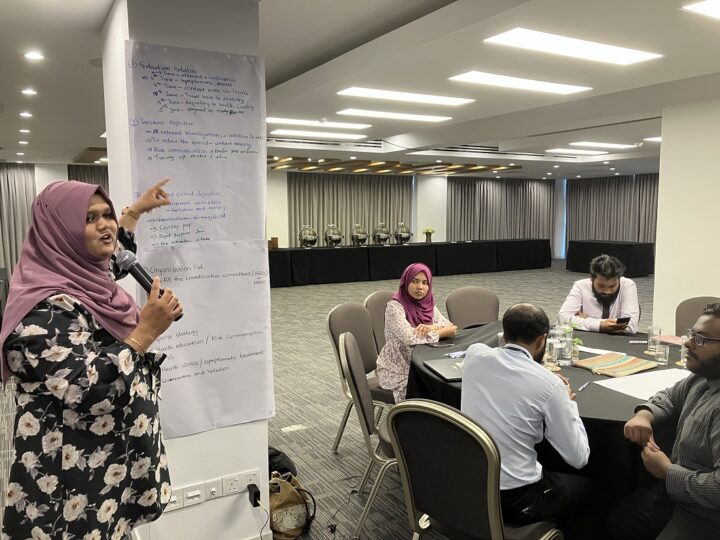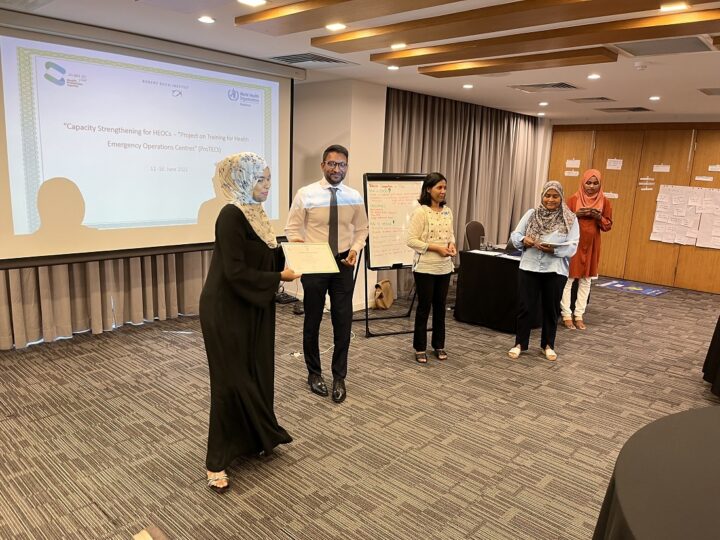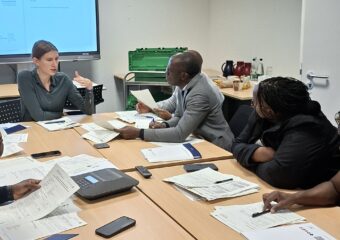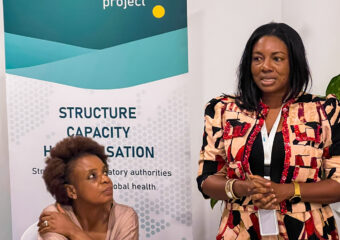Implementation of a Capacity Building Package With the Ministry of Health, Maldives
From 12 – 16 June 2022, the piloting of the Capacity Building Package (CBP) for Health Emergency Operations Centres (HEOC) took place in Male, Maldives as part of the GHPP “Project on Training for Health Emergency Operations Centers” (ProTECt). The objectives were to provide relevant content on HEOC standards, conduct a needs assessment based on the experiences made during the COVID-19 pandemic, and implement a “training of trainers” approach to enable similar activities at the sub-national level.
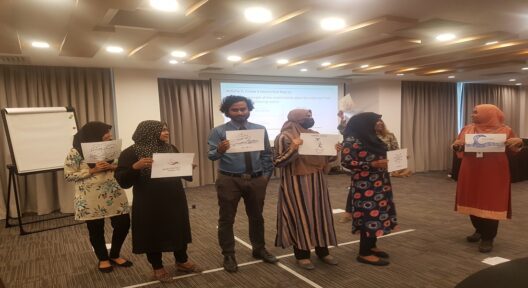
The “Unit for Crisis Management, Outbreak Investigations and Training Programmes” (FG31) together with the “Information Centre for International Health Protection” (ZIG1) of the Robert Koch Institute (RKI) have been implementing a joint project (ProTECt) together with the WHO Regional Office for Southeast Asia (SEARO) to strengthen national Health Emergency Operations Centres since the beginning of 2020. After delays due to the COVID-19 pandemic, the Capacity Building Package (CBP) developed could now be piloted together with the Ministry of Health of the Maldives. In addition to RKI and SEARO, representatives of the WHO Country Office and the Ministry of Health of the Maldives were involved in the CBP conceptualization and implementation. ProTECt is funded by the German Federal Ministry of Health as part of the German Global Health Protection Programme (GHPP).
The CBP conducted combined both training and workshop elements to promote national HEOCs as the central coordinating body for crisis management, and emphasized an interactive implementation. Here, the topics covered a wide range of HEOC-related content such as intersectoral communication and collaboration, data management, and relevant training and exercise formats to optimize and expand existing HEOC structures. In addition to teaching relevant standards (based on the WHO PHEOC Framework, 2015), a needs assessment for the further development of the national HEOC of the Maldives was conducted, including the development of a corresponding action plan (“roadmap”). For this purpose, the respective training sessions were followed by structured discussion rounds with special consideration of the experiences from the COVID-19 pandemic. The key topics identified in this way were then grouped together, the priority issues to be addressed were identified and the next steps for implementation were agreed.
Results
A total of 28 employees of the Ministry of Health were trained in various topics. The subsequent evaluation revealed a consistently high level of satisfaction with regard to the selection of topics and general training and workshop implementation methods. The CBP implementation also proved to be highly relevant to the tasks to be covered by the participants in the HEOC and crisis management.
The needs assessment identified several areas where further improvements are necessary. These related primarily to national plans (e.g. national emergency response plan), training formats and simulation exercises, and data management. Another major challenge, due to the geographical characteristics of the country, is the cooperation and communication with the numerous regions (atolls and islands) during health emergencies. While there are established crisis management structures at the central level, there are still considerable deficits in the sub-national structures. In order to support these structures through training measures, the participants were trained in a “training of trainers” approach to subsequently implement the developed CBP in the corresponding regions. WHO SEARO and RKI will provide the necessary materials and further support the implementation process.
An evaluation of the training measures, including a joint simulation exercise of an infectious disease outbreak in the Maldives, is planned for the end of 2022.
Date: August 2022

